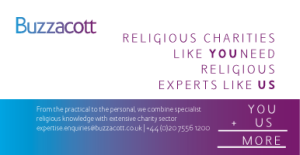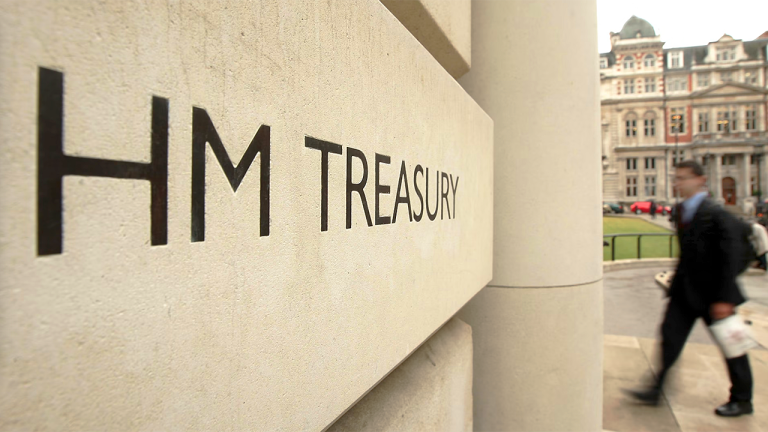Sorry, no records were found. Please adjust your search criteria and try again.
Sorry, unable to load the Maps API.
As bankers and finance bosses got hauled in front of MPs today to explain how the latest interest rate rises are going to impact on their customers, and on society in general, there’s now an obvious unease that the UK economy is teetering on the edge of an unprecedented chasm. At typically 6.66%, mortgage rates have hit a 15 year high and show no sign of slowing as lenders grapple with inflation and the uncertainty caused by the Bank of England interest rate hikes.
The lenders facing today’s Treasury Select Committee were questioned in particular about the mortgage stress being faced by borrowers, and what strategies are being put in place to assist those falling behind with their payments. There have already been ominous headlines about the impact of the economic uncertainty on customers – those with variable rate mortgages drift further into debt with every rate increase, but even those on fixed rates are heading for stress as some 1.6 million fixed rate deals are due to expire in December 2024, and for them remortgaging at the now higher rate will involve a substantial increase in their monthly repayments.
Today’s Committee meeting brought bluster and criticism from legislators, and reciprocal empathy and rhetoric from the big lenders, but there was an ominous absence of meaningful proposals.
Just last week the BBC economist Marc Ashdown proposed five ways you could offset the impact of spiralling interest rates on your mortgage, which have been reiterated widely by legislators and financial commentators – pay a lot more each month to reduce your debt; switch to interest only for now and settle later; downsize, extend you mortgage term or rent out rooms.
Ironically those five proposals illustrate graphically why the country is in the financial mess it is, as Ashdown’s fixes translate to find more cash, kick your debt down the road, do whatever you have to with your home, but whatever you do, keep the mortgage system going and don’t ask too many awkward questions.
Back at the Treasury Select Committee, global economics, the Ukraine war and climate warming hovered as reasons for the present malaise, but no-one was ever going to admit that for several centuries now we’ve been locked into an economic model that simply doesn’t work, and almost certainly never will.
As it happens, the mortgage illustrates the problem concisely. A century or so ago this punitive lending mechanism would have been condemned as usury; in fact usury – the charging of interest of any kind to unfairly benefit the lender – was considered illegal by most societies right back to the pre-Christian period. In the 13th century St. Thomas Aquinas, the father of scholastic theology, argued charging of interest is wrong because it amounts to “double charging”, charging for both the thing and the use of the thing.
It was only relatively recently (1919 Code of Canon Law) that the Catholic Church ceased to consider the charging of interest to be a sin. A century late Pope Francis tackled the monetary dilemma head on when he spoke recently of “an economy that kills” and the need to say “no to a financial system that rules rather than serves.” (Evangelii Gaudium, 24th November 2013).
Today we’ve become so used to mortgages and being exploited by corporate lenders that it seems absurd to suggest we could function economically without charging interest on loans, but there are other mechanisms. When we take on a mortgage we borrow a fixed amount, at a certain rate of interest. When we make a repayment, the amount is deducted from the outstanding balance, but then the full rate of interest is applied again to the remaining balance, and so on. This creates the dreaded mortgage statement where we see we have made a substantial monthly repayment, only to find that a small portion of it actually goes to reducing the debt – but the bulk goes straight into the lender’s coffers. Is there an alternative? Of course, a far more acceptable, manageable and moral alternative would be for the lender to loan an amount of money, and to charge a single fixed fee for the service, spread over the duration of the loan. This is a more common practice than you think – Sharia, or Muslim banking very much works in this way as it flows out of Islamic laws and beliefs about the correct and moral use of money, and the need to avoid getting into debt at all.
It’s also worth mentioning that an important principle in Sharia banking is the sharing of risk, which also never happens in the West. In the world of Muslim finance it’s taken for granted that the loaning of money is a risk, and unsecured, and that’s the primary reason that a fee (rather than interest) is charged. The lender also has a moral responsibility to ensure that the customer is able to navigate their loan, and to help them when negative circumstances intervene. Contrast this with the aggressive mechanism of the western banking, where the lender has eliminated all risk and owns your property until the very last penny of your loan is paid, and in the meantime raids your savings every month to add to its own excessive wealth.
“The worship of the ancient golden calf (cf. Ex 32:1-35) has returned in a new and ruthless guise in the idolatry of money and the dictatorship of an impersonal economy lacking a truly human purpose.” (Pope Francis, Evangelii Gaudium, 55).
There is nothing to stop western banks and lenders adopting a similar process, but here money lending is tied inextricably to broader, darker political strategies around the need to keep people in endless employment for taxation purposes. As any homeowner (a euphemism if ever there was) can tell you, the primary reason that individuals and families get out of bed every morning and fall into the daily commute is not really to feed and clothe themselves, but to pay the heavy mortgage payments that put a roof over their heads. Today it is the mortgage, not food and security, that drives human behaviour and of course the longer this happens, the longer people are in employment, the more taxation the government receives.
In blunt terms, an onerous mortgage stretching across a lifetime is the mechanism of choice to keep governments functioning, and any government’s greatest fear is that citizens pay off their mortgage, as this gives them choices and the freedom to make decisions about the nature of the work they can then choose to do or not to do.
One only has to look at the post-covid employment statistics to see that, when given the opportunity, many will choose not to be locked in a treadmill of arduous employment – though I’d emphasise this doesn’t mean idleness, but rather the choice to contribute to the common good in other more meaningful ways. Since the pandemic it’s estimated that more than half a million people who had previously worked are now what the Office for National Statistics (ONS) describes as “economically inactive”. Research is starting to reveal that many of these ‘lost’ citizens were made redundant during Covid and may well have used their redundancy payments to clear their mortgages, and have found themselves in a position where they’ve been able to re-asses their lifestyles and employment habits.
I’ve met quite a few people in exactly this position and far from being idle, these people have found new and far more positive ways to contribute to their local communities than spending their days making the one ten thousandth part of a washing machine. Of course, this doesn’t help governments and the financial institutions, who need your cash but aren’t in the slightest bit interested in the deeper welfare of society and its citizens, or what our Catholic Church calls ‘the primacy of the human person’.
The ‘worship of the golden calf’ now permeates all aspects of society, and we are much the worse for it. Pope Francis has spoken uncompromisingly about the abandonment of ethics in financial markets:
“It is seen as counterproductive, too human, because it makes money and power relative. It is felt to be a threat, since it condemns the manipulation and debasement of the person. In effect, ethics leads to a God who calls for a committed response which is outside the categories of the marketplace. When these latter are absolutized, God can only be seen as uncontrollable, unmanageable, even dangerous, since he calls human beings to their full realization and to freedom from all forms of enslavement”. (Evangelii Gaudium, 57).
This may sound like new, radical theology, but Francis is only reiterating centuries of Catholic teaching in calling for a world where “money must serve, not rule!”
In my four decades in Catholic publishing I’ve seen numerous initiatives come and go, attempting to seek a redefinition of free market capitalism, or to formulate Catholic responses to current economic and fiscal mechanisms. In particular the 1996 document The Common Good and the Catholic Church’s Social Teaching was intended as a landmark intervention in the debate about the role of the citizen, and the obligations of government, in modern British society.
In his preface, HE Cardinal Basil Hume said that society should respect human freedom: “by enabling men and women to assume responsibility for their own lives, and encouraging them to co-operate with each other to pursue the common good. This means that the functions of government, though important, must always be subsidiary; that is, government should help men and women to be free to realise their own destiny.”
Some three decades on, and unimaginable social and economic upheavals later, The Common Good now reads as a somewhat naive and ill-at-ease attempt to start a meaningful debate on the interface between Catholic social teaching and modern British society. Much of that came from the fact that back then the Church itself was still enmeshed in both the contemporary financial model, and believed (in a typically British way) that it could more effectively influence legislators and social policy with discrete diplomacy than public pronouncements. But the problem with discrete diplomacy is that it can be ignored far more easily, and plays into the systematic failures and weaknesses of any political system.
Three decades on from the publication of The Common Good the upheaval and uncertainty seeping through all levels of British society is calling for a renewed statement of intent and concern from within the Catholic community. Pope Francis has been both eloquent and uncompromising in his calls for an end to “the absolute autonomy of the marketplace and financial speculation” and a return to the ethics that lead “to a God who calls for a committed response which is outside the categories of the marketplace.”
Francis has emphasised that: “A financial reform open to such ethical considerations would require a vigorous change of approach on the part of political leaders” but it’s also worth mentioning that such things will only receive consideration if there is an equally vigorous demand for ethical change from the people that political leaders are supposed to be serving.
Joseph Kelly is a Catholic publisher and theologian.






























